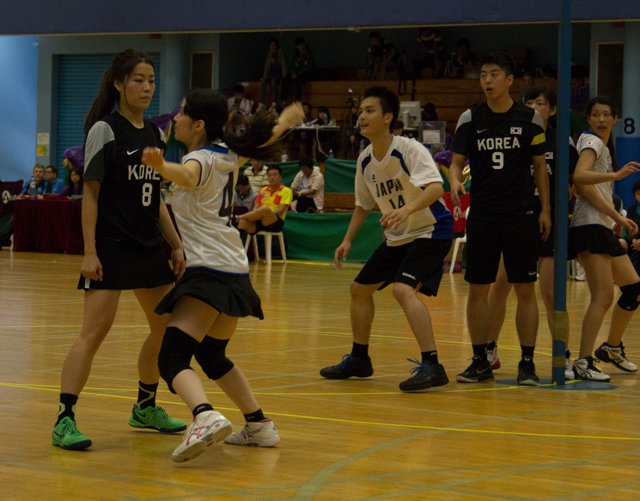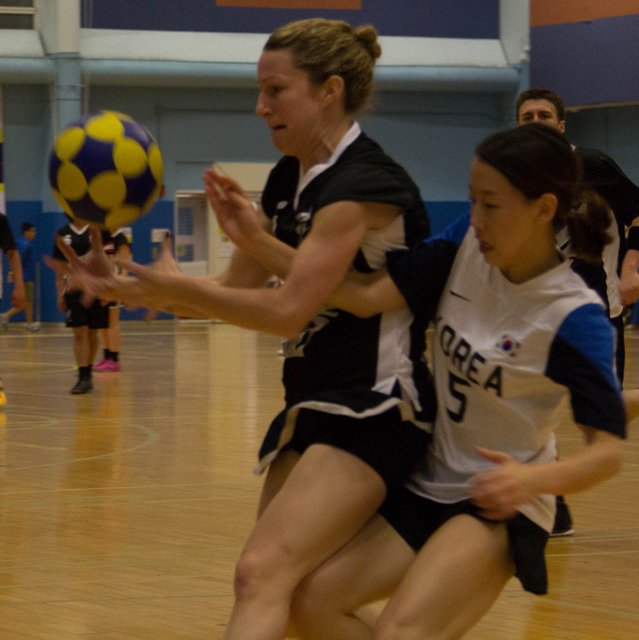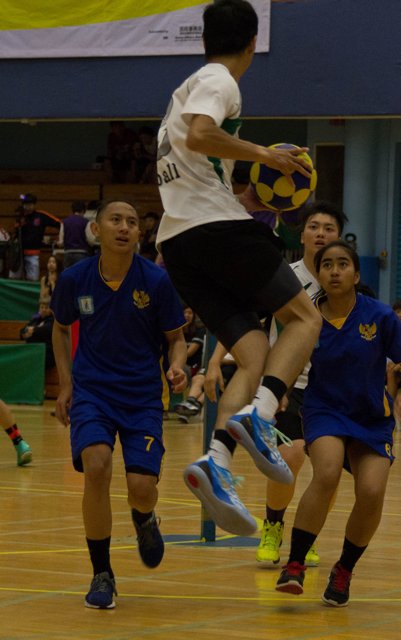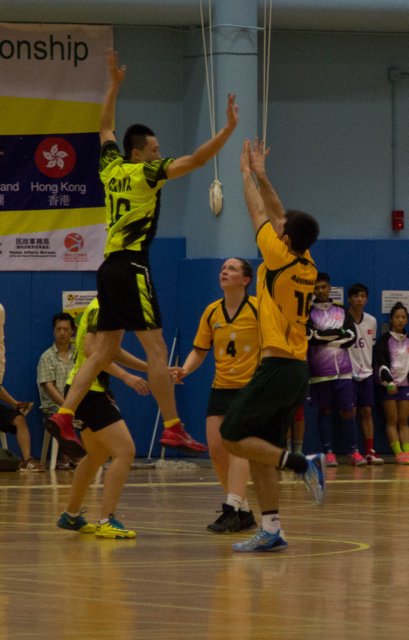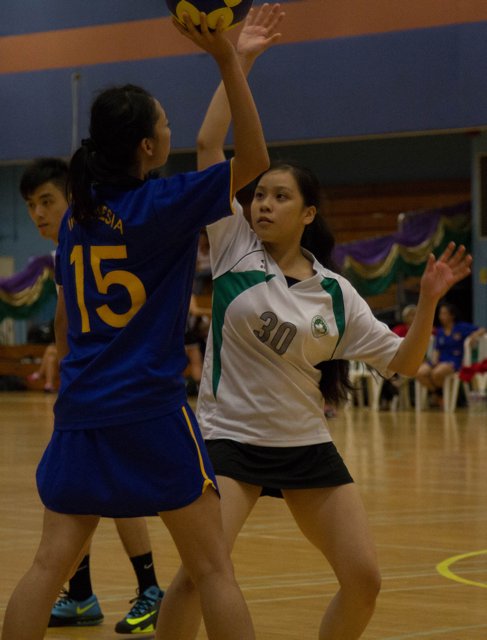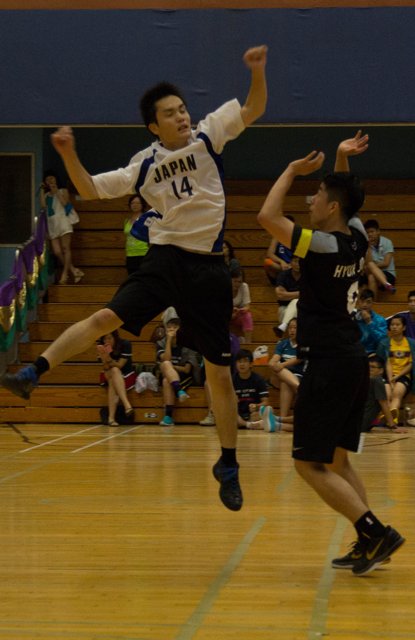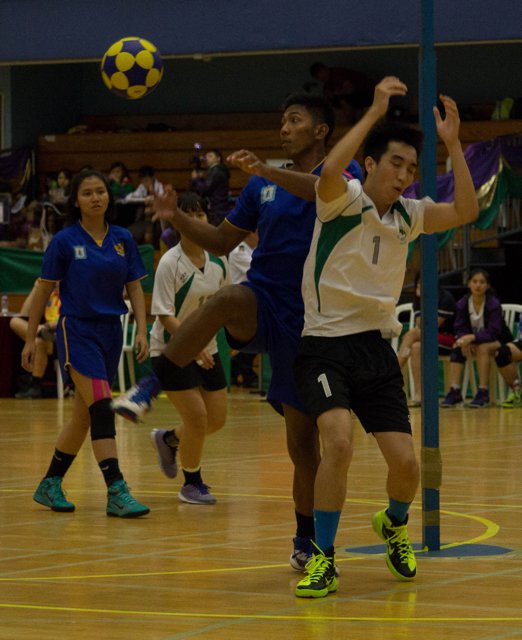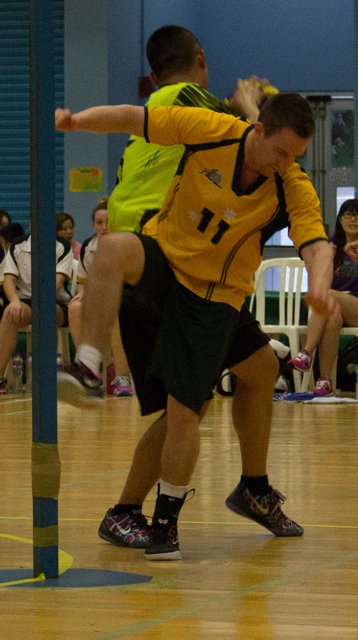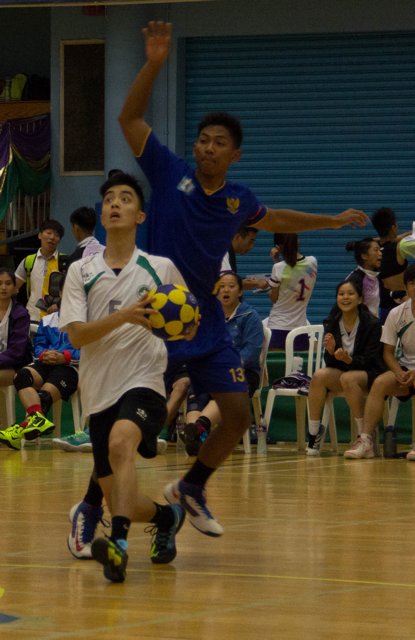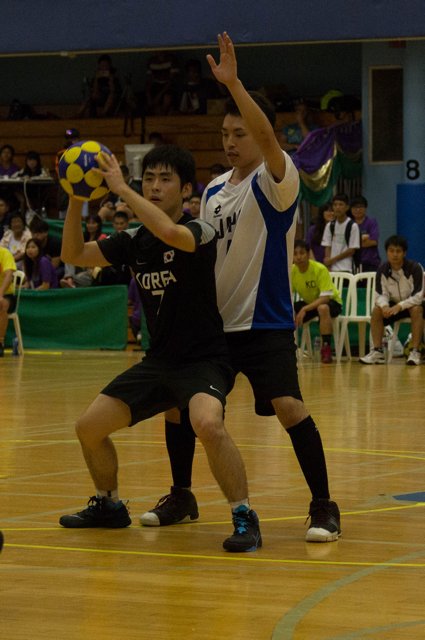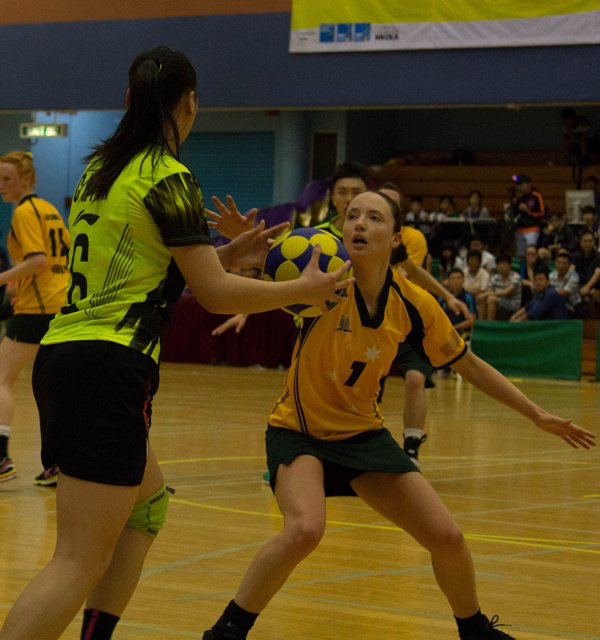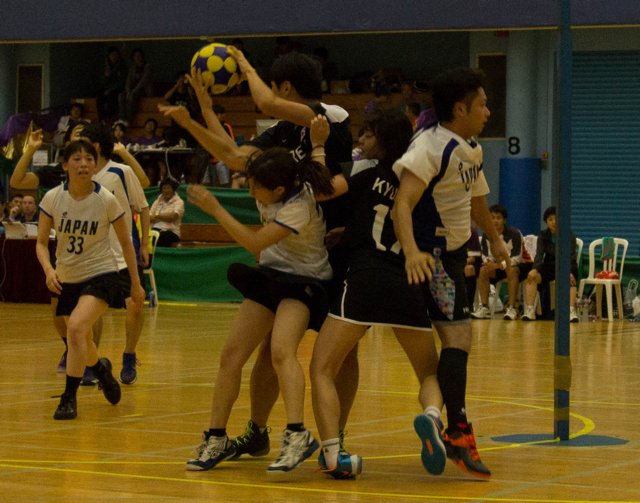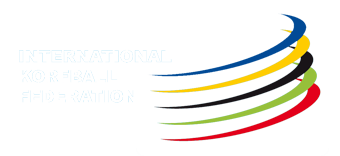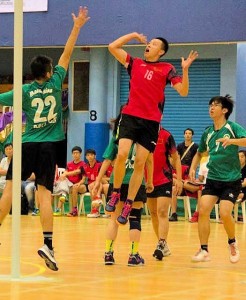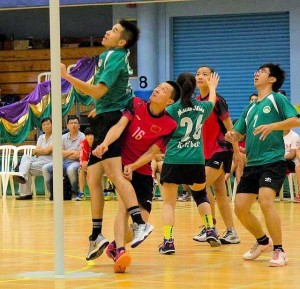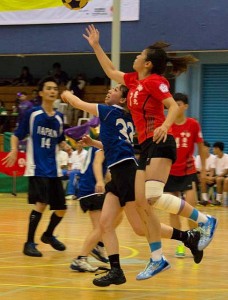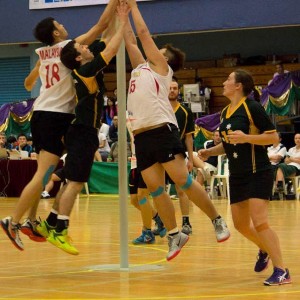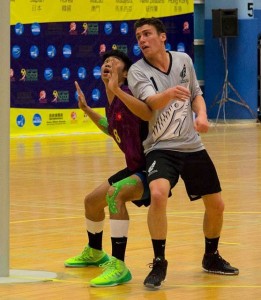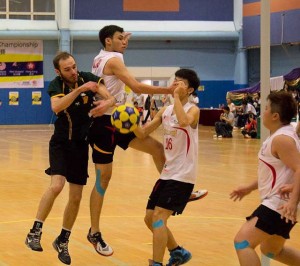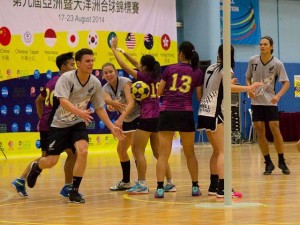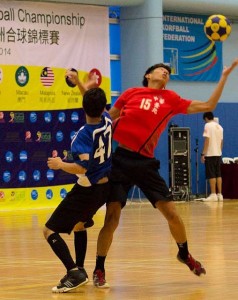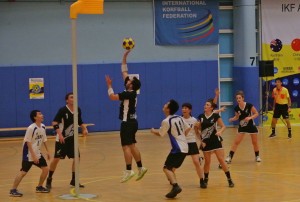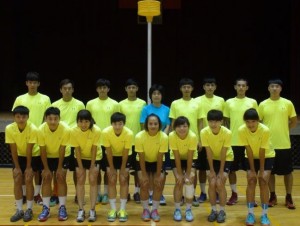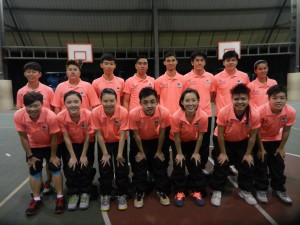On Day Two of the 2014 IKF AOKC, with a further six games completed, the two groups are beginning to sort themselves out.
Malaysia achieved a second comfortable win of the tournament in the day’s first game, taking advantage of Indonesia’s inexperience to ease to a 12-5 win. By beating first Macau and now Indonesia, Malaysia has given itself an excellent opportunity to justify its third seeding in group B, suggesting that, unless a freak result occurs in the next two days, it will still be in contention for a medal after all group games are completed. Indonesia, on the other hand, which has the lowest ranking of all teams here, will need to learn from the lessons of its first two games and look to make improvements for the future.
Game two saw another close fought, low scoring Group A contest, as Japan, which held a two goal lead for a period of the first half, succumbed to Korea’s dominance in the rebound to fall to a second loss, 9-7.
Game three, between the teams ranked two and three, produced the best korfball of the tournament so far, Australia prevailing over Group B rival China after a full-blooded tussle. China reined in the aggression they displayed yesterday, at least slightly, and held the lead for much of the first half, benefiting from some inattentive defence by Australia, which conceded seven penalties in the half, all scored. The Skippies found some rhythm in the final minutes of the half, though, which continued in the first few minutes of the second half, as they scored seven goals unanswered to take control. Craig Miller was particularly effective. A spectacular Ashlee Othen goal, converting a running in shot from an intercept, was decisive leaving China an insurmountable five goal deficit with ten minutes to play. Final score: 20-14.
When the top two seeds in Group A met in the following game, the outcome contrasted significantly to the Australia-China match. Making it first appearance at this tournament, defending IKF Asia Oceania korfball champion Chinese-Taipei accounted for host Hong Kong with effortless ease, displaying their dynamism, speed and shooting prowess. Superstar Ricky Wu scored six in the first half as his team demonstrated its superiority for an 18-5 half time lead. His show ceased soon after when he was one of a rash of substitutions made by the respective coaches. Scoring was more sedate after that, and although Hong Kong achieved parity with five second goals apeice, the result was a foregone conclusion: 23-10 to Chinese Taipei.
Superior shooting by Macau produced a win over Indonesia, playing its second match of the day, which nevertheless was its strongest performance of the tournament so far. Ka U Chao scoring seven for Macau.
In the final game, for the second day in succession, New Zealand again struggled to overcome a lower ranked opponent, though ultimately produced a more convincing performance to beat Korea, thanks in large part to Rosa Cooper. Introduced to the game just before half time, her shooting accuracy countered the Korean’s strong rebounding and her five second half goals proved the difference as New Zealand prevailed by 11-5. Like Malaysia, New Zealand has assured it will remain in medal contention beyond the group games.
